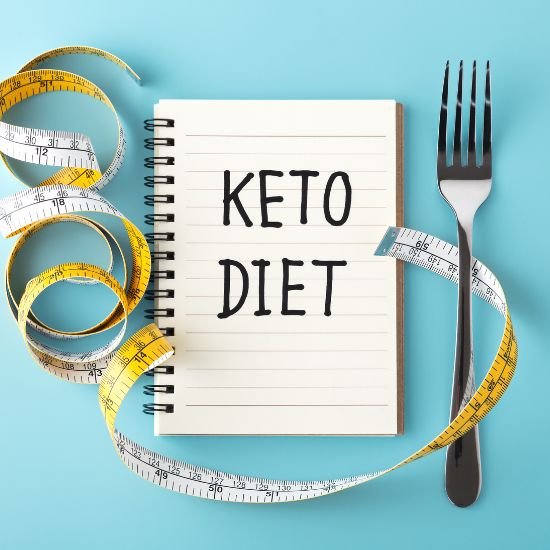
Is MCT oil good for you ? The premium fuel for our body.
Share
About Medium Chain triglycerides (Capric & Caprylic acid )
IT’S TIME TO RECONSIDER THE F-WORD . WE’RE TALKING ABOUT FAT - KETO FUEL MCT OIL .
Fat gets a bad wrap and, for the most part, deservedly so. But at SHARRETS , we believe not all fats are created equal.
That’s because we have found extreme value in a particular fat known as MCTs . In fact, we believe these MCTs (Medium chain triglycerides) are the premium fuel for your body’s everyday functions —the best fuel for life.
You see, MCTs don’t behave like other fats. It’s chemically structured to produce energy, not body fat. In fact, Medium chain Triglycerides (MCTs) are hailed as the all natural answer to eliminating stubborn fat of body . What’s more: you’re likely to lose weight fast !
The typical Western diet is largely composed of long chain triglycerides (LCTs), typically consumed in processed vegetable oils such as soy, canola, and safflower.
In excess, Long chain Triglycerides (LCTs) acts as the building blocks of stubborn body fat . Unlike Long chain triglycerides , shorter length Medium chain triglycerides are primarily used for production of energy and rarely ever stored as fat.
The role of Ketones in our body.
Keto fuel MCT oil - Medium chain triglycerides promotes ketone bodies —compounds created by the body when it burns fat stores for energy. When you eat a diet low in carbs and high in healthful fat, your body responds to the reduced levels of blood sugar by switching to an alternative power source and converts fatty acids in the liver to ketones.
Ketones then become the main energy source. Instead of your body burning carbs, it burns fat !
At SHARRETS , we’re using MCTs as the foundation for creating the highest quality plant-based dietary supplements and functional foods to support those striving to live an active, nutritious lifestyle.
We know what you’re probably thinking: “Really ? By promoting more fat in my diet ?” The answer is YES ! Increasing the amount of quality fat in your diet can actually improve your health—especially if the fat is made up of MCTs.
What are your wellness goals ? If it is :
- Muscle maintenance, ( MCT oil for muscle building)
- Weight loss (MCT oil for weight loss)
- Athletic performance ( MCT oil for athletes)
- Brain health.(MCT oil brain fuel / brain fuel mct oil)
- Graceful ageing. ( MCT oil for aging)
- Immune system support ( MCT oil for immunity)
Then you must incorporate Medium Chain Triglycerides (MCTs) into your diet.
Check out our FAQ's about MCTs to know more about this Premium fuel.
Several studies , papers , books support the claims that Medium chain triglycerides (MCT) can aid in weight loss, increase physical endurance, help maintain cognitive health, and provide antioxidant support .
Berry, E. M. (1997). Dietary fatty acids in the management of diabetes mellitus. American Journal of Clinical Nutrition, 66.
Baba, N. (1982). Enhanced thermogenesis and diminished deposition of fat in response to overfeeding with diet containing medium-chain triglyceride. American Journal of Clinical Nutrition, 35.
Behrend, A.M, Harding, C. O., Shoemaker, J. D., Matern, D., Sahn, D. J., Elliot, D. L. & Gillingham, M. B. (2012). Substrate oxidation and cardiac performance during exercise in disorders of long chain fatty acid oxidation. Molecular Genetics and Metabolism, 105(1).
Clegg, M. E., Golsorkhi, M. & Henry, C. J. (2012). Combined medium-chain triglyceride and chili feeding increase diet-induced thermogenesis in normal-weight humans. European Journal of Nutrition.
Bray, G. A., Cee, M. & Bray, T. L. (1980). Weight gain of rats fed medium-chain triglycerides is less than rats fed long-chain triglycerides. International Journal of Obesity, 4.
Cohen, L. A. (1988). Medium chain triglycerides lack tumor-promoting effects in the n-methylnitrosourea-induced mammary tumor model. In The Pharmacological Effects of Lipids, vol. 3, edited by J. J. Kabara. Champaign, Illinois: The American Oil Chemists’ Society.
Cohen, L. A. & Thompson, D. O. (1987). The influence of dietary medium chain triglycerides on rat mammary tumor development. Lipidsm 22(6).
Constantini, L. C., Barr, L. J., Vogel, J. L. & Hendersen, S. T. (2008). Hypometabolism as a therapeutic target in Alzheimer’s disease. BMC Neuroscience, 9.
Divi, R. L., Chang, H. C. & Doerge, D. R. (1997). Anti-thyroid isoflavones from soybean: Isolation, characterization, and mechanisms of action. Biochemical Pharmacology, 54(10).
Enig, M. G. (1999). Coconut: In support of good health in the twenty-first century. Paper presented at the Thirty-Sixth Annual Meeting of the APCC.
Duan, W., Guo, Z., Ware, M., Li, X. J. & Mattson, M. P. (2003). Dietary restriction normalizes glucose metabolism and BDNF levels, slows disease progression, and increases survival in huntingtin mutant mice. Proceedings of National Academy of Sciences USA, 100(5).
Enig, M. G. (2000). Know your fats: The complete primer for understanding the nutrition of fats, oils, and cholesterol. Silver Spring, Maryland: Bethesda Press.
Fife, B. (2012). Conquering Alzheimer’s with Coconut Ketones. Coconut Research Center.
Fife, B. (2012). Coconut Ketones: Fueling Brain Function & Reversing Autism. Well Being Journal, 21(5).
Fife, B. (2004). The Coconut Oil Miracle. New York: Avery.
Fine, E. J., Miller, A., Quadros, E. V., Sequeria, J. M. & Feinman, R. D. (2009). Acetoacetate reduces growth and ATP concentration in cancer cell lines which over-express uncoupling protein 2. Cancer Cell International, 9(14).
Fine, E. J., Segal-Isaacson, C. J., Feinman, R. D…Sparano, J. A. (2012). Targeting insulin inhibition as a metabolic therapy in advanced cancer: a pilot safety and feasibility dietary trial in 10 patients. Nutrition, 10.
Gasior, M., Rogawski, M. A. & Hartman, A. L. (2006). Neuroprotective and disease-modifying effects of the ketogenic diet. Behavioural Pharmacology, 17.
Fushiki, T., Matsumoto, K., Inoue, K., Kawada, T. & Sugimoto, E. (1995). Swimming endurance capacity of mice is increased by chronic consumption of medium-chain triglycerides. Journal of Nutrition, 125.
Geliebter, A. (1983). Overfeeding with medium-chain triglycerides diet results in diminished deposition of fat. American Journal of Clinical Nutrition, 37.
Greenberger, N. J. & Skillman, T. G. (1969). Medium-chain triglycerides: physiologic considerations and clinical applications. New England Journal of Medicine, 280.
Geliebter, A., Torbay, N., Bracco, E. F., Hashim, S. A. & Van Itallie, T. B. (1983). Overfeeding with medium-chain triglycerides diet results in diminished deposition of fat. American Journal of Clinical Nutrition, 37.
Hashim, S. A. & Tantibhedyangkul, P. (1987). Medium chain triglyceride in early life: Effects on growth of adipose tissue. Lipids, 22.
Hernell, O., Ward, H., Blackberg, L. & Pereira, M. E. (1986). Killing of Giardia lamblia by human milk lipases: An effect mediated by lipolysis of milk lipids. Journal of Infectious Diseases, 153.
Hill, J. O., Peters, J. C., Yang, D., Sharp, T., Kaler, M., Abumrad, N. N. & Greene, H. L. (1989). Thermogenesis in humans during overfeeding with medium chain triglycerides. Metabolism, 38.
Ingle, D. L. (1999). Dietary energy value of medium chain triglycerides. Journal of Food Science, 64(6).
Isaacs, C. E & Thomar, H. (1991). The role of milk-derived antimicrobial lipids as antiviral and antibacterial agents. In Immunology of milk and the neonate, edited by J. Mestecky, Blair C. & Ogra P. L. New York: Plenum Press.
Issacs, C. E., Kim, K. S. & Thomar, H. (1994). Inactivation of enveloped viruses in human bodily fluids by purified lipid. Annals of the New York Academy of Science, 724.
Jiang, Z. M., Zhang, S. Y. & Wang, X. R. (1993). A comparison of medium-chain and long-chain triglycerides in surgical patients. Annals of Surgery, 217(2).
Kabara, J. J. (1978).Fatty acids and derivatives as antimicrobial agents. In The pharmacology effect of lipids, edited by J. J. Kabara. Champaign, Illinois: American Oil Chemists’ Society.
Kabara, J. J. (1984). Antimicrobial agents derived from fatty acids. Journal of the American Oil Chemists, 61.
Kaunitz, H. & Dayri, C. S. (1992). Coconut oil consumption and coronary heart disease. Philippine Journal.
Karup, P. A. & Rajmohan, T. (1994). Consumption of coconut oil and coconut kernel and the incidence of atherosclerosis. In Coconut and Coconut Oil in Human Nutrition, Proceedings. Symposium on Coconut and Coconut Oil in Human Nutrition, sponsored by the Coconut Development Board, Kochi, India, March 27, 1994.
Kiyasu, G. Y. (1952). The portal transport of absorbed fatty acids. Journal of Biological Chemistry, 199.
Kono, H., Enomoto, N., Connor, H. D., Wheeler, M. D., Bradford, B. U., Rivera, C. A., Kadiiska, M. B., Mason, R. P. & Thurman, R. G. (2000). Medium-chain triglycerides inhibit free radical formation and TNF-alpha production in rats given enternal ethanol. American Journal of Physiology, Gastrointestinal and Liver Physiology, 278(3).
Krotkiewski, M. (2001). Value of VLCD supplementation with medium chain triglycerides. International Journal of Obesity and Related Metabolic Disorders, 25(9).
Mercola, J. (2013, March). Ketogenic Diet May Be Key to Cancer Recovery.
Nosaka, N., Suzuki, Y., Nagatoishi, A., Kasai, M., Wu, J. & Taguchi M. (2009).Effect of ingestion of medium-chain triacylglycerols on moderate- and high-intensity exercise in recreational athletes. Journal of Nutritional Science Vitaminol (Tokyo), 55(2).
Prior, I. A., Davidson, F., Salmond, C. E. & Czochanska, Z. (1981).Cholesterol, coconuts, and diet on Polynesian atolls: A natural experiment: The Pukapuka and Tokelau Island studies. American Journal of Clinical Nutrition, 34(8).
Pestchow, B. W., Batema, R. P. & Ford, L. L. (1996).Susceptibility of Heliobacter pylori to bactericidal properties of medium-chain triglycerides and free fatty acids. Antimicrobial Agents and Chemotherapy, 145.
Reddy, B. S. (1992). Dietary fat and colon cancer: Animal model studies. Lipids, 27(10).
Reger, M. A., Hendersen, S. T., Hale, C., Cholerton, B. Baker, L. D., Watson, G. S., Hyde, K., Chapman, D. & Craft, S. (2004). Effects of beta-hydroxybutyrate on cognition in memory impaired adults. Neurobiology of Aging, 25(3).
Reiner, D. S., Wang, C. S. & Gillin, F. D. (1986). Human milk kills Girardia lamblia by generating toxic lipolytic products. Journal of Infectious Diseases, 154.
Seaton, T. B., Welle, S. L., Warenko, M. K. & Campbell, R. G. (1986). Thermic effect of medium-chain triglycerides in man. American Journal of Clinical Nutrition, 44.
Seyfried, T. N., Kiebish, M., Mukherjee, P. & Marsh, J. (2008). Targeting energy metabolism in brain cancer with calorically restricted ketogenic diets. Epilepsia, 49(8).
Siri-Tarano, P. W., Sun, Q., Hu, F. B. & Krauss, R. M. (2010). Meta-analysis of prospective cohort studies evaluating the association of saturated fat with cardiovascular disease. American Journal of Clinical Nutrition, 91(3).
Seyfried, T. N., Mukherjee, P., Kalamian, M. & Zuccoli, G. (2011). Restricted Ketogenic Diet (RKD) as an Alternative Strategy for GBM. Treatment Strategies, Oncology, 2(1).
St-Onge, M-P. & Bosarge, A. (2008). Weight-loss diet that includes consumption of medium-chain triglycerol oil leads to a greater rate of weight and fat mass loss than does olive oil. The American Journal of Clinical Nutrition, 87(3).
St-Onge, M-P., Bosarge, A., Goree, L. L. T. & Darnell, B. (2008). Medium Chain Triglyceride Consumption as Part of a Weight Loss Diet Does Not Lead to an Adverse Metabolic Profile When Compared to Olive Oil. Journal of the American College of Nutrition, 27(5), 547-552.
St-Onge, M-P & Jones, P. J. (2002). Physiological effects of medium-chain triglycerides: potential agents in the prevention of obesity. Journal of Nutrition, 132(3).
St-Onge, M-P., Ross, R., Parsons, W. D. & Jones, P. J. (2003). Medium-chain triglycerides increase energy expenditure and decrease adiposity in overweight men. Obesity Research, 11(3).
Stanhope, J. M., Sampson V. M. & Prior, I. A. (1981). The Tokelau Island migrant study: Serum lipid concentrations in two environments. Journal of Chronic Diseases, 34.
Thampan, P. K. (1994). Facts and fallacies about coconut oil. Jakarta: Asian and Pacific Coconut Community.
Tantibhedhyangkul, P. & Hashim, S. A. (1978). Medium-chain triglyceride feeding in premature infants: Effects on calcium and magnesium absorption. Pediatrics, 61(4).
Thormar, H. (2011). Lipids and Essential Oils as Antimicrobial Agents. United Kingdom: Wiley.
Thormar, H., Issacs, C. E., Brown, H. R., Barshatzky, M. R. & Pessolano, T. (1987). Inactivation enveloped viruses and killing of cells by fatty acids and monoglycerides. Antimicrobial Agents and Chemotherapy, 31.
Tieu, K., Perier, C., Caspersen, C., Teismann, P., Wu, D. C., Yan, S. D., Naini, A., Vila, M., Jackson-Lewis, V., Ramasamy, R. & Prezborski, S. (2003). D-beta-hydroxybutyrate rescues mitochondrial respiration and mitigates features of Parkinson disease. Journal of Clinical Investigation, 112(6).
Van der Auwera, I., Wera, S. Van Leuven, F. & Hendersen, S. T. (2005). A ketogenic diet reduces amyloid beta 40 and 42 in mouse model of Alzheimer’s disease. Nutrition & Metabolism (London), 2.
Yang, Y. & McClements, D.J. (2013). Vitamin E bioaccesibility: Influence of carrier oil type on digestion and release ofα-tocopherol acetate. Food Chemistry, 141(1).
Zhao, Z., Varghese, M., Vempati, P., Dzhun, A., Cheng, A., Wang, J., Lange, D., Bilski, A., Faravelli, I. & Pasinetti, G.M. (2012). Caprylic triglyceride as a novel therapeutic approach to effectively improve the performance and attenuate the symptoms due to the motor neuron loss in ALS disease. PLoS One, 7(11).
Zhao, Z., Lange, D. J., Voustianiouk, A., MacGrogan D, Lo, H., Suh, J. Humala, N., Thiyagarjan, M., Wang, J. & Pasinetti, G. M. (2006).A ketogenic diet as a potential novel therapeutic intervention in amyotrophic lateral sclerosis. BMC Neuroscience, 7.
















